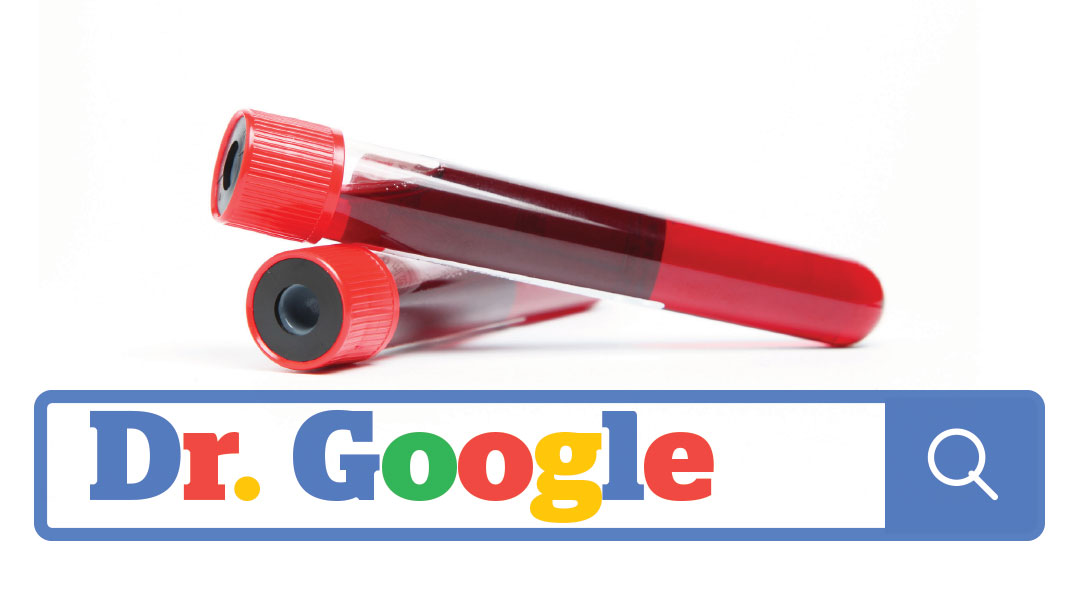Dr. Google
| December 2, 2020Cold dread mingled with an absurd sense of validation at having my fears confirmed

I never should have Googled it, I know, I know.
Dr. Google is evil and pessimistic and out to brand his patients with the most frightening maladies known to mankind. His prognoses are grim at best, hair-raising at worst. If he’d have it his way, we’d all be limping about, wheezing and gasping, and looking death in the face.
There’s a good reason Dr. Google is a pariah within the medical community, with physicians warning their patients to stay away from him. But the patients don’t heed those warnings, because they have a need to know. And Google boasts endless fountains of knowledge.
Which brings me back to the reason I googled.
I’d had bloodwork done, and was notified that the results were in. I was told I could have them sent to me, or schedule an appointment to review the results with a doctor. Email it over, I said, because as I mentioned, I have this need to know.
The first page looked routine enough. I know this because the lab considerately includes a reference range next to each result, so I can know if something is off. (Why do they do this, I wonder? Is it for people like me who attempt to decipher their results without having a clue what they’re looking at? Or is it for the doctors, who should know this stuff without helpsies?) The lab also helpfully bolds any number out of range, so I don’t miss it. Which I didn’t.
There were a couple of figures, mostly in the same category (I think?), that were elevated. Not as in borderline elevated, but as in skyrocketing, not-even-in-the-reference-range ballpark high. I made an urgent mental note to look into it, and promptly got swept up in more pressing matters.
The next day, as I was researching something unrelated, I remembered. I input the info and waited.
Dr. Google did not disappoint.
Oops! We could not locate your form.







